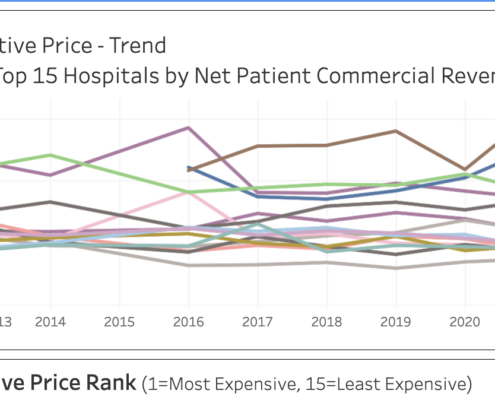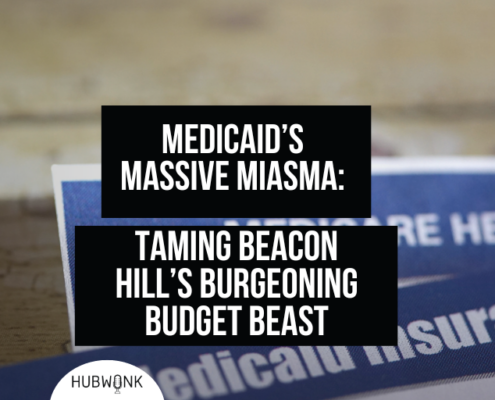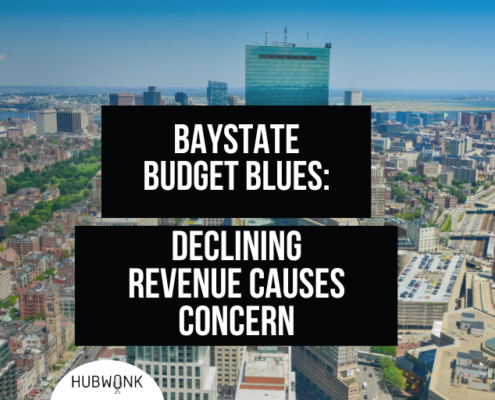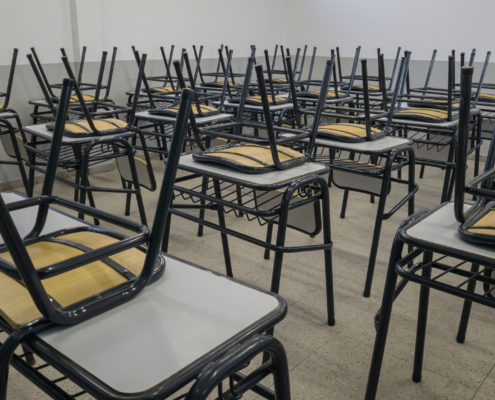Policy Brief: UMass Has a Spending Problem
/0 Comments/in Featured, Higher Education, News /by Editorial Staff Share on Facebook
Share on Twitter
Share on
LinkedIn
+
Author: Greg Sullivan
Date: 6/6/2018
Pioneer’s Director of Research, Greg Sullivan, releases a follow-up policy brief to address the source of UMass’ financial woes. The University of Massachusetts claims admissions policies that favor out-of-state students over in-state residents are required as a result of insufficient state funding growth, but the data tell a different story.
Stay Connected!
Related Posts

Pulitzer Winner Joan Hedrick on Harriet Beecher Stowe & Uncle Tom’s Cabin
Prof. Hedrick discusses Harriet Beecher Stowe's wide literary influence on U.S. history. From her abolitionist activism to the publication of international bestseller Uncle Tom's Cabin, they explore Stowe's New England upbringing, anti-slavery convictions, and lasting impact on American literature and social reform in the 19th century.

Genetic Therapy Revolution: Benefits and Barriers for Medicine’s New Horizon
Joe Selvaggi talks with neurobiologist and writer Dr. Anne Sydor about the potential for gene therapy to address deadly and debilitating diseases and how current health care models must adapt to encourage this nascent technology.

Dr. Adrian Mims on The Calculus Project & STEM
Dr. Mims navigates through the contentious "math wars" and underscores the pivotal role of Algebra I as a gateway to higher math. He also evaluates the negative impact of Common Core math standards, and proposes strategies to combat pandemic-induced learning setbacks and bridge the gap in math proficiency between American students and their international counterparts.

Contours of Content Curation: SCOTUS Hears Online Free Speech Cases
Cato Institute's Thomas Berry, talks about oral arguments at the Supreme Court in the NetChoice cases, exploring the First Amendment questions that affect both social media users and the platforms that curate their content.

Boston Children’s, MGH Among Massachusetts Hospitals with Highest Relative Commercial Prices
Pioneer Institute's new tool, the Massachusetts Hospital Relative Price Tracker, displays relative price and facilitates relative price comparisons among hospitals. The average price among all hospitals will have a relative price of 1.0. A relative price of 1.5 means that a hospital charges 50 percent higher than the average of all Massachusetts hospitals. Similarly, a relative price of 0.84 means that a hospital’s prices are 16 percent below average. Relative price data is collected and reported by the Commonwealth’s Center for Health Information and Analysis (CHIA) and is an aggregate measure used to evaluate price variations among different hospitals. It is recalculated annually based on data collected from commercial payers and includes information on private commercial insurance and commercially managed public insurance products such as Medicare Advantage and Medicaid Managed Organizations/Accountable Care Partnership Plans.

Yale University Pulitzer Winner Beverly Gage on J. Edgar Hoover & the FBI
Yale Prof. Beverly Gage, author of "G-Man: J. Edgar Hoover and the Making of the American," delves into the enigmatic life and career of J. Edgar Hoover, tracing his formative years in Washington, D.C., his rise to prominence as director of the FBI, and his enduring influence on American law enforcement and politics.

Mortgage’s New Normal: Guide to Better Borrowing Amidst Higher Rates
Joe Selvaggi talks with mortgage expert, Trip Miller of Cambridge Savings Bank, about mortgage rates and trends and explores best practices for finding a mortgage structure that suits individual buyers’ needs.

UK U-Warwick’s Benjamin Smith on Mexico’s Cartels & Drug Trade
Prof. Benjamin Smith, author of The Dope: The Real History of the Mexican Drug Trade, provides insights into various aspects of the Mexican drug trade, including its historical context and the evolution of illicit drug products over time. He discusses key cartels and their methods, the impact of the drug trade on Mexico's murder rates, the immense financial scale of the trade, its effect on Mexico and the U.S., and the challenges law enforcement face in combating it. Smith explores the relationship among Mexican cartels, other foreign countries, and the illicit drug market in the U.S.

Medicaid’s Massive Miasma: Taming Beacon Hill’s Burgeoning Budget Beast
Marc Joffe, a state policy analyst at the Cato Institute, talks about his research on Medicaid's cost and size. They explore how Massachusetts can control spending growth while protecting other priorities.

DFER-MA’s Mary Tamer on MCAS & Teacher Strikes
Mary Tamer focuses on the historic impact of the 1993 Massachusetts Education Reform Act on the commonwealth’s students’ high achievement on national and international measures. She explores the politics of the Massachusetts Teachers Association advocating against the MCAS test as a graduation requirement. In closing, Ms. Tamer also discusses the rise of teacher strikes and their implications for education reform in the Bay State.

Baystate Budget Blues: Declining Revenue Causes Concern
Joe Selvaggi engages in a conversation with Pioneer Institute’s Eileen McAnneny, Senior Fellow for Economic Opportunity, to analyze the status of the 2024 budget. They compare actual revenue and spending with pre-July 1 estimates, investigating potential reasons for any surpluses or shortfalls. They also dive into policy implications for legislators as they approach fiscal 2025.

U-TN’s Robert Norrell on Booker T. Washington & Voc-Tech
Prof. Robert Norrell explores Booker T. Washington's early life in slavery, his transformative leadership at Tuskegee Institute amidst Jim Crow racism, and his advocacy for vocational education as a means for racial uplift. He also discusses Washington’s 1901 autobiography, Up From Slavery; his controversial White House dinner with President Theodore Roosevelt; and his often overlooked legacy following the activism of the 1960s Civil Rights era.

Smothering Gas Exports: President Sides with Environmentalists Over Environment
Dr. Benjamin Zycher, a senior fellow at the American Enterprise Institute, talks on the impact of President Biden's executive order to halt liquefied natural gas export approvals. He explores potential economic impacts, the response from trading partners, and the negligible effect on climate.

Pioneer Statement on Continuing Slide in Massachusetts’ Revenue
The Commonwealth’s tax collections continue to slide, totaling $3.594 billion in January, $268 million below what the state collected in January 2023, and short of the revised benchmark by $263 million. Massachusetts state government must live within its means by reducing FY2025 spending. The days of fiscal surpluses, unprecedented increases in year-over-year spending, and flowing federal aid have come to an end.

Teachers strikes hurt the students
At a time when the country’s basic commitment to the rule of law is being questioned, Newton educators are teaching their students that breaking the law and thumbing one’s nose at a judge’s order are OK — if it is in your self-interest.

Pioneer Statement on Decline in State Revenues
The Commonwealth’s finances have stumbled hard in recent months, and based on a report the Department of Revenue (DOR) sent to the Legislature in January, the trend shows no signs of easing. Massachusetts needs a renewed emphasis on fiscal discipline and pro-growth policies to make the state economically competitive again.

BC’s Dr. Matthias von Davier on TIMSS & K-12 Global STEM
Dr. von Davier explores his educational background and its influence on directing TIMSS & PIRLS, shedding light on psychometrics and standardized testing. He discusses the shift in education policy's focus, the global education data landscape, and the pandemic's effects on K-12 education around the world. Dr. von Davier addresses the alarming decline in U.S. educational performance, emphasizing the urgency to bridge achievement gaps. Drawing from international experiences, he highlights global examples for American policymakers from higher-performing countries, emphasizing the crucial links between education, skills, and innovation on the global economy.

U.S. Manufacturing Health: Does the U.S. Need an Industrial Policy?
Scott Lincicome from the Cato Institute discusses the U.S. manufacturing industry, international trade, and industrial policy. He dispels the myth of manufacturing decline, highlighting sector evolution and productivity. The conversation moves to industrial policy, emphasizing the need for targeted protection and cautioning against broad subsidization due to potential inefficiencies.



